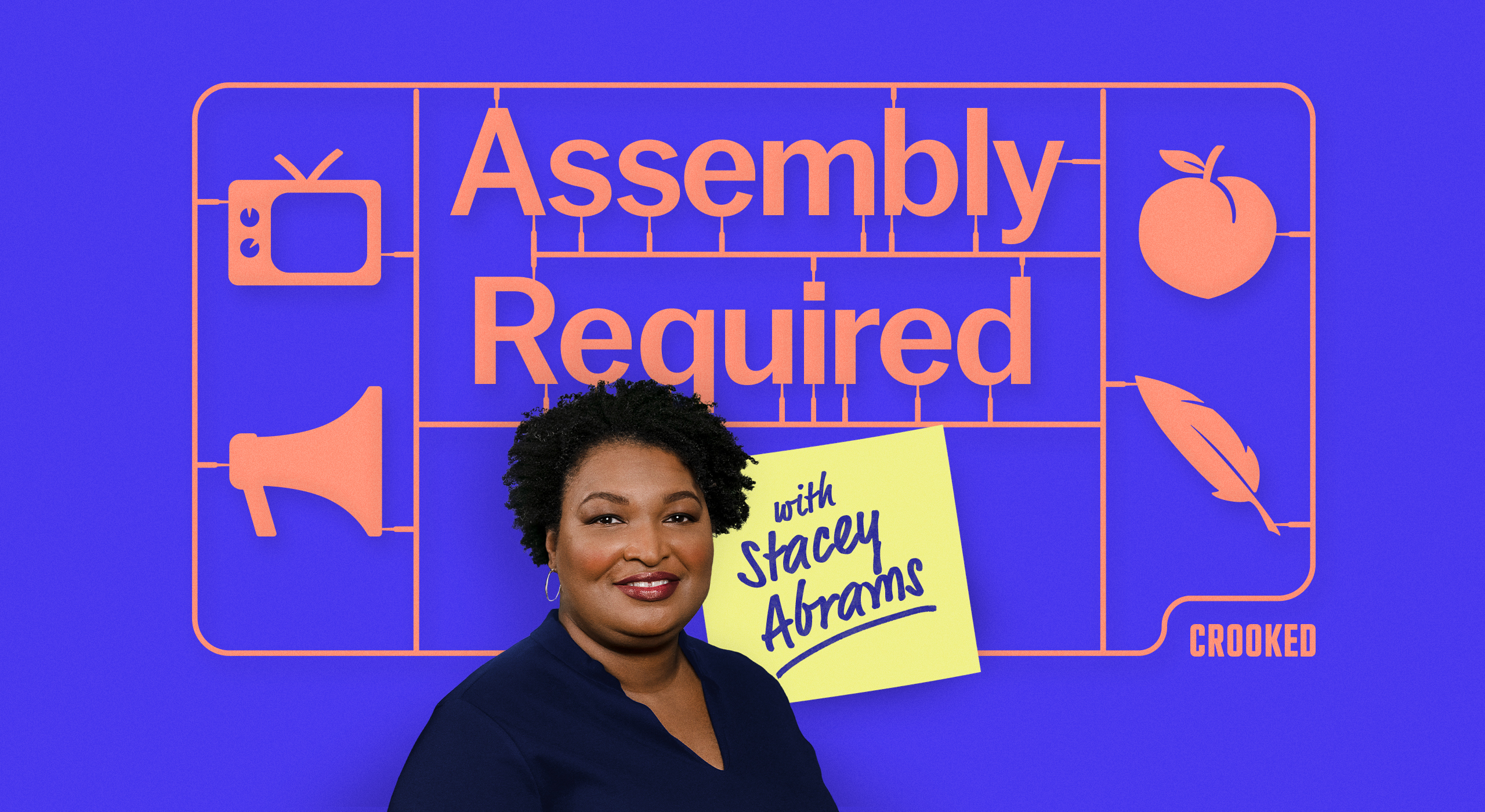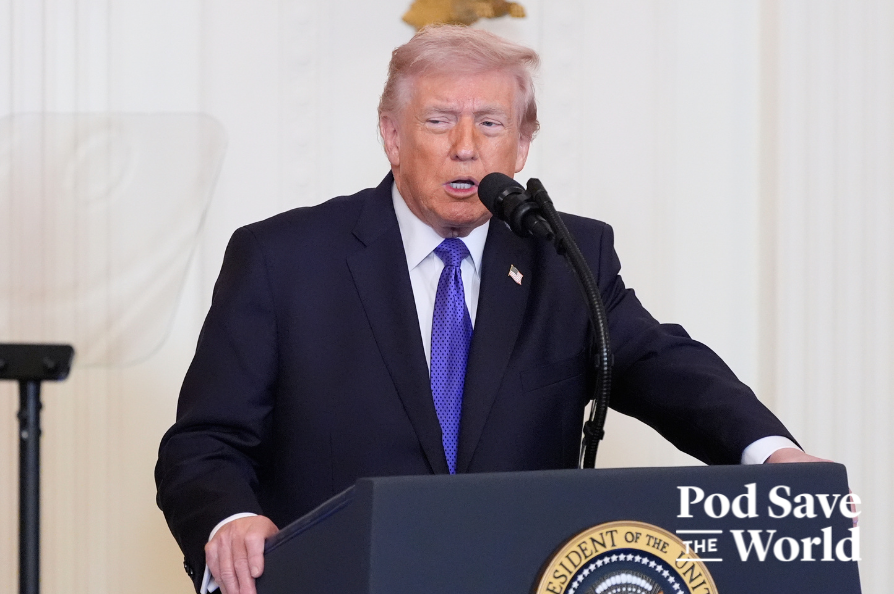
It didn’t take very long for me to spot a Make America Great Again hat inside the Texas home of a Border Patrol agent whose union endorsed Trump for the Republican presidential nomination back in March 2016.
President Trump won Texas by almost 10 points, and 57 percent of men here supported him, so finding Trump regalia in a trophy case wouldn’t have been out of the ordinary even if my host was in a different line of work. But as I walked through the kitchen, where his wife offered me cucumber lemonade, and into the Texas-sized living room, I heard the voices of Spanish commentators on television. The Mexican National Soccer team had just lost 3-0 to Sweden in the World Cup, but thanks to South Korea’s victory over Germany (and the fact that Mexico had won both of its games earlier in the tournament), “El Tri,” as the team is known, moved to the next round.
“We played terrible, but we qualified,” the Border Patrol Agent said to no one in particular.
The Valley, as Texans call it, is the ribbon of southern Texas that spans the Mexico-U.S. border and the immigration checkpoints sixty miles into the interior of the U.S. The population is largely Latino—around 90 percent—and the vast majority of Latino citizens here voted for Hillary Clinton in 2016. But Customs and Border Enforcement (CBP) is one of the largest employers in the Rio Grande Valley, so it isn’t rare to find Latino CPB agents all along the border.
Still I was confused. A Border Patrol agent, a Trump supporter, talking about the Mexican team as his team, listening to Spanish television, before heading off for his shift “securing the nation’s borders.”
I was at the home of this CBP agent by chance. My friend drove us the almost 300 miles from San Antonio to Brownsville and we’d made a pit stop at his friend’s house. I wasn’t there very long. We mostly talked about our thoughts on the game and made predictions for who will win the World Cup.
But the encounter underscored to me that in the part of America that has become synonymous with Trump’s cruelest policy, many of the assumptions we make about the Trump phenomenon—assumptions about lily-white voters who are hostile to immigrants, despite living far from immigrant communities, assumptions that bear out elsewhere in the country—begin to break down.
I was in The Valley to take part in the nationwide protests against family separation. I could have gone to my local protest in Los Angeles, but until a few years ago I couldn’t travel to the border in Texas. I was undocumented and the checkpoints presented a problem. Now, as an American citizen I can travel to all parts of the United States, and going to the border carried special meaning. The border has always meant family separation to me. Everyday immigrants face deportation in federal courts along the Mexico-U.S. border. I wasn’t just protesting recent news stories about the 2,300 children who have been separated from their parents. I was at the border to protest a long history of families being ripped apart.
The Valley is home to one of those federal courts where hundreds of immigrants are tried every week. Thousands of us gathered outside the Reynaldo G. Garza and Filemon B. Vela Federal Courthouse to protest last week. A few of us were allowed into the courthouse to observe sentencing hearings, most of them for illegal re-entry.
Jesus, a rugged looking Mexican man in his forties, walked slowly into the courtroom with a chain around his waist that shackled his hands, and another chain around his feet, which slowed his stride. His lawyer, an older Latino gentleman, asked the judge to sentence Jesus for time served. Jesus had already been in prison for 15 months stemming from a conviction for re-entering the United States after he was deported.
His story was heartbreaking.
Jesus’s grandmother was born in Iowa, which made his father a U.S. Citizen, and made Jesus eligible to become a U.S. Citizen under his father’s status. But Jesus’s father kicked him out of their Iowa home when he was 14 years old, for intervening to defend his mother from spousal abuse. When Jesus turned 18, he was no longer eligible to naturalize under his father’s citizenship. Jesus spent the next several years homeless, working as a gardner. Because he slept in parks and on the roofs of homes, police arrested him for trespassing multiple times. Eventually things improved for Jesus. He got married and became a father to four U.S. citizen girls, who were present in the courtroom. But the U.S. government nevertheless deported him to Mexico, a country he’d left as a young child. Jesus tried coming back illegally to be reunited with his wife and four kids, a felony. He is ineligible to enter the country legally because recent deportees face a 10-year ban under U.S. law. He cannot apply to adjust his immigration status under his wife’s citizenship because his felony conviction makes him ineligible.
As Jesus’ lawyer told this story, and made the case for leniency, he made one unexpected argument, “I voted for Trump. I believe we need the wall to keep bad men out. But Jesus is not one of those men.”
My stomach turned. Immigrants’ lives are on the line at the border, and this exchange made it look for all the world like their fates can turn on whether Trump supporters will vouch for their character in court.
Still, the lawyer went on to make an otherwise strong and successful case. Jesus faces deportation after his release from federal prison. His lawyer’s plan is to apply for a special waiver so Jesus can stay in the U.S. after his prison sentence for the felony re-entry conviction. He is fighting hard so his client can remain in the U.S., even though his client broke the laws Trump claims to want to enforce without exception.
After the hearing ended I approached the lawyer, and after a brief introduction, I asked him, “Do you think by supporting Trump you are hurting people like your client?”
He answered with a familiar refrain Trump supporters use to justify their choices. “No, Trump is not a bad guy. He acts tough, but he is really a good guy deep inside.”
“Does a good guy separate families? Does a good guy equate Mexican immigrants with rapists and criminals?” I asked.
“Trump isn’t racist” he jumped in.
But Trump is racist. His rhetoric and policies are hurting people like Jesus. The separation of families isn’t just happening at the border, it’s happening to people in Iowa, and all over America, like Jesus who have been in the U.S. for decades with no way to fix their immigration statuses.
“I feel good about helping Jesus. He is a good man,” the lawyer added.
“But what about everyone else who is being hurt by Trump? You can’t represent them all.” I said.
Silence.
The contradictions in the Rio Grande Valley are everywhere. They defy stereotype. But under Trump some have become impossible to resolve.


